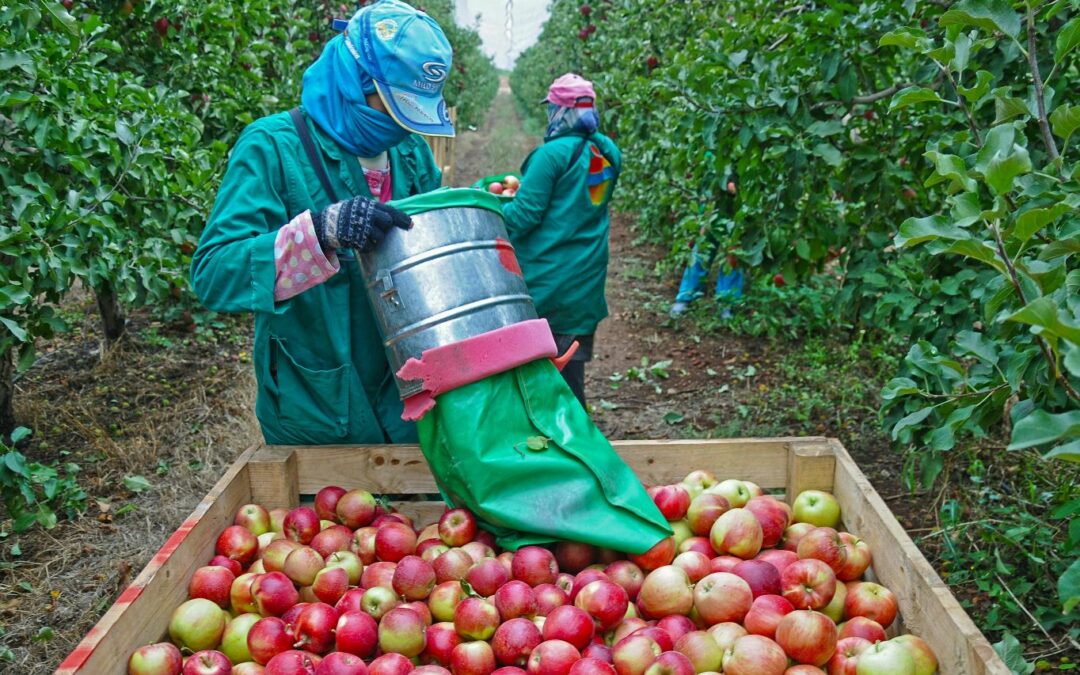Today, Familias Unidas por la Justicia (FUJ), a union of farm workers based in Skagit County, filed a request for preliminary injunction in a lawsuit against the United States Department of Labor (DOL) for failing to protect farmworker wages as use of the H-2A visa program grows in Washington state. Farmworkers who have lived and worked in Washington for decades say the jobs and wages they rely on every harvest season are disappearing due to the inaccurate and illegal way DOL sets base wages for farms that employ H-2A workers.
“Farmworker families earning less than $20,000 a year can’t afford a pay cut. The government allowing growers to lower wages like this forces hard-working families to make choices between food and rent, medicine and vehicle payments, or utility payments and children’s clothes. We as local workers can’t tolerate this,” said FUJ president Jose Ramirez.
Nearly 40,000 workers will come to harvest fruit in Washington on H-2A temporary agriculture visas this year, then return to their home countries. Use of the program has increased by 1,000% since 2008. By federal statute, no H-2A visas can be issued unless DOL certifies that “the employment of [foreign] labor . . . will not adversely affect the wages and working conditions of workers in the United States similarly employed,” and that “there are not sufficient workers who are able, willing, and qualified, and who will be available at the time and place needed, to perform the labor or services.” However, because DOL has failed in its duty to set accurate pay requirements for the H-2A program, employers are offering jobs at far below the market rate, which local workers cannot live on.
“DOL’s number-one job in this system is to protect local workers’ wages, and it is failing spectacularly. On DOL’s watch, Washington growers are using the H-2A system to slash worker pay and drive away local workers,” said Andrea Schmitt, attorney with Columbia Legal Services who is representing the farm workers. Local workers say they have always been paid a “piece-rate” wage based on how much fruit they were able to pick in a workday. Now, growers who employ H-2A workers offer only the minimum hourly wage set by DOL, which can be as little as 50% of piece-rate earnings.
The cause of these depressed wages is the faulty process through which DOL sets required wages (called “prevailing wages”) for growers who choose to use the H-2A program. First, the Washington State Employment Security Department (ESD) surveys H-2A employers about the past year’s wages and then passes the data – accurate or not – along to DOL. This unsubstantiated and often incomplete data is then used to determine the prevailing wage through methodologies that result in “no findings” for some of the largest crops in Washington state, such as Granny Smith, Red Delicious, and Fuji apples. Where there are “no findings” the wage requirement defaults to the minimum hourly wage for H-2A.
State legislation to improve parts of this system passed earlier this year, requiring the survey to ask farm workers directly (not just their employers) what they had they been paid, but DOL has not published new findings and continues to use data from 2022.
Washington is one of the last states in the nation that even attempts to protect local worker wages, thanks to decades of farm worker organizing. Local farmworkers in other states were long ago replaced with H-2A workers, making it easy for DOL to certify a shortage of local workers each year. Familias Unidas filed the original lawsuit in federal court on Tuesday, May 7th. With the preliminary injunction filed today, they have asked the judge to issue an emergency order to prevent DOL’s unlawful actions from drastically reducing the wages of Washington farmworkers and to protect those wages until accurate wage findings can be published.

Recent Comments